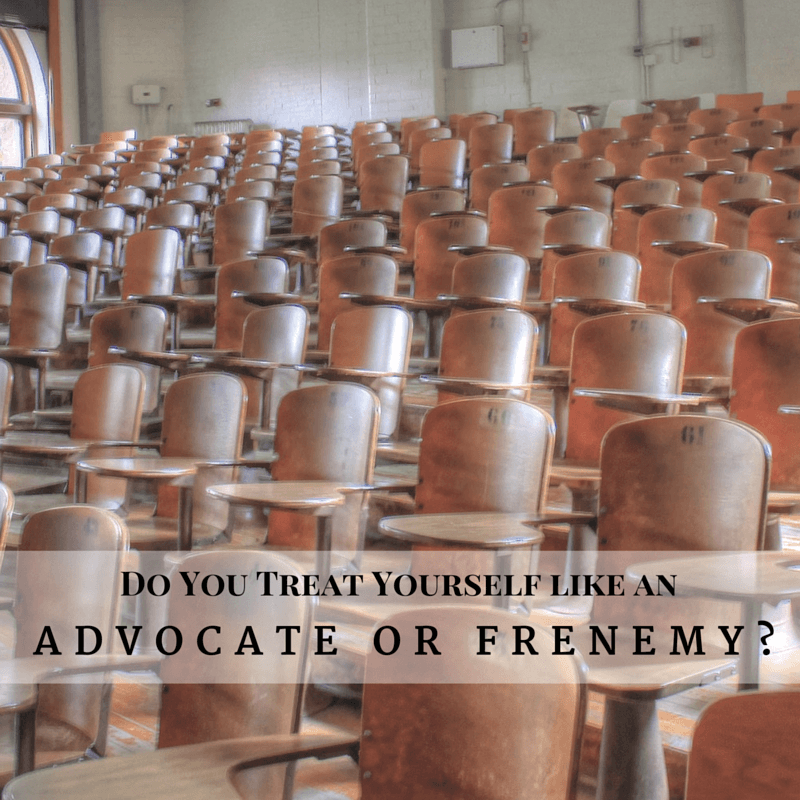
I had the opportunity last week, before vacation, to attend the senior project presentations for the University of New Hampshire’s business school. One of the presenters was a former intern of mine and I had promised him I would attend. He kept thanking me for taking the time and I kept trying to explain that it was important for me to go.
Years ago, when it was my college capstone project, I still remember my Colonel walking down the aisle of the auditorium in his uniform. I was so proud that I was the one he had come to represent and terrified that I’d let him down. I wasn’t presenting that day to anyone but him and my father, who had also come to support me. The bar couldn’t be higher – the professors couldn’t expect more from me than they would.
When it was time for me to do the same for my intern, I tried to do it right. I left work early, even though it was right before vacation, to make sure I could attend the luncheon the school had planned. I could have just shown up for his presentation, but instead, I participated in all the festivities.
I even gave him a package before we left with some books inside. One in particular made him laugh. “Dr Seuss?!?!” “Yes. It was the same book given to me when I left the Marine Corps.” “Oh” No more laughs after that. He immediately understood the significance.
We enjoyed the lunch and then went to watch the presentations. I was highly critical. I knew he would want a debrief later, so I watched every presentation, every verbal tick, every uncomfortable pose, and wondered how he would do when it was finally his turn.
My intern was the only one presenting alone, summarizing a project he had worked on with me until I started my new job and he was assigned to another manager. Listening to him, part of me felt like I had failed him. He spoke well and presented in a way that made me proud of him – distinguishing himself from the other students. However, he clearly struggled with how to represent the project in a way that kept the work confidential, but made it tangible for the audience.
Once we left the presentations, he confessed that he was presenting to me – similar to how I had been presenting to my Colonel long ago. He was interested in my feedback and whether he had made me proud. I gave him my thoughts – as much as I could share in the few minutes we had before he had to get to the students-only event about to start. I told him that whatever I originally thought was irrelevant. Ultimately, he was done and would graduate, so any dissecting of the presentation was unnecessary.
Though I felt that “coulda, shoulda, woulda” would not do him any good, I did have one piece of advice. At one point in the presentation, he told everyone “I’m sure I’m sounding very vague.”
I explained that everyone has their own thoughts. You are trying to present yourself in a certain way, deliver a particular message, and do your best to influence those thoughts to where you want them to go. You don’t need to direct people to a negative place if they aren’t already headed there. If they are, you don’t need to help them on their way.
I did not think he was being particularly vague during his presentation – after all, I was familiar with the project – until he mentioned that he thought he was being vague. Then I wondered.
We are all both our best and worse critics. We can be advocates for ourselves and our careers, or frenemies. For those that don’t know, a frenemy is someone that comes across as a friend, but is actually an enemy in disguise.
Why would we intentionally submarine ourselves? We don’t. Instead, it’s often our own self-doubt or insecurities that come out – setting the bar lower so that we know we can hurdle it.
I shared with him that I’ve done the same thing – saying things about myself that may very well be true, but that put a particular perspective in someone’s mind that may not be what I want to leave them with. I don’t intend to submarine myself, but intentions don’t mean a whole lot if the end result is the same.
One day, a mentor and advisor of mine commented on my tendency – pointing out the perception it created. I’ve been trying to change my thought patterns as a result, but it made it very easy to see it in someone else. It also made me inclined to share it, so he didn’t spend decades unaware, as I had.
He appreciated my advice and I think it’s something he’ll walk away with from his final senior project, even if he forgets everything else. He’s also likely to remember that I was there, supporting him, as I remember my Colonel from so long ago.
I’ve already received a text from him “Read the book. Now I get it. Thank you.” It was Dr Seuss’ “Oh, The Places You’ll Go.” The gifts I was given by the Marine Corps have been passed on. Hopefully, when it’s his turn, my intern will do the same.








